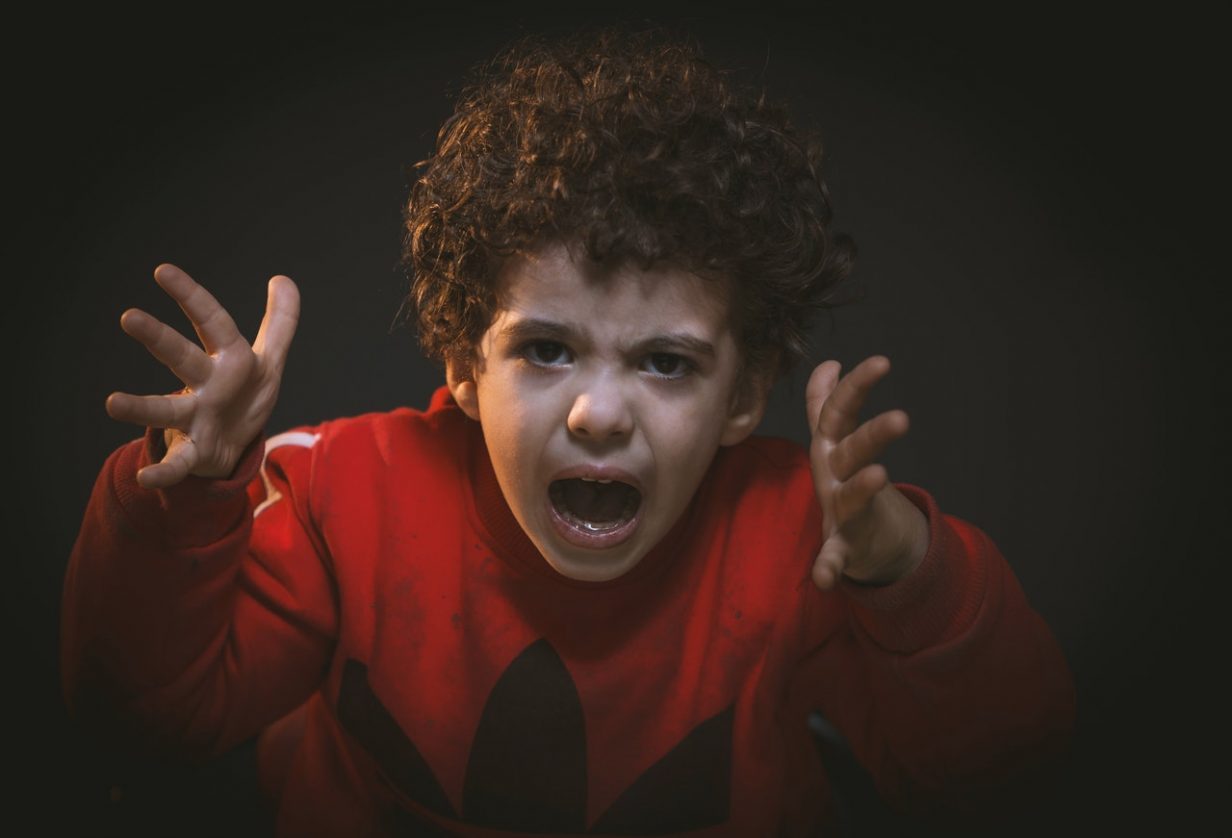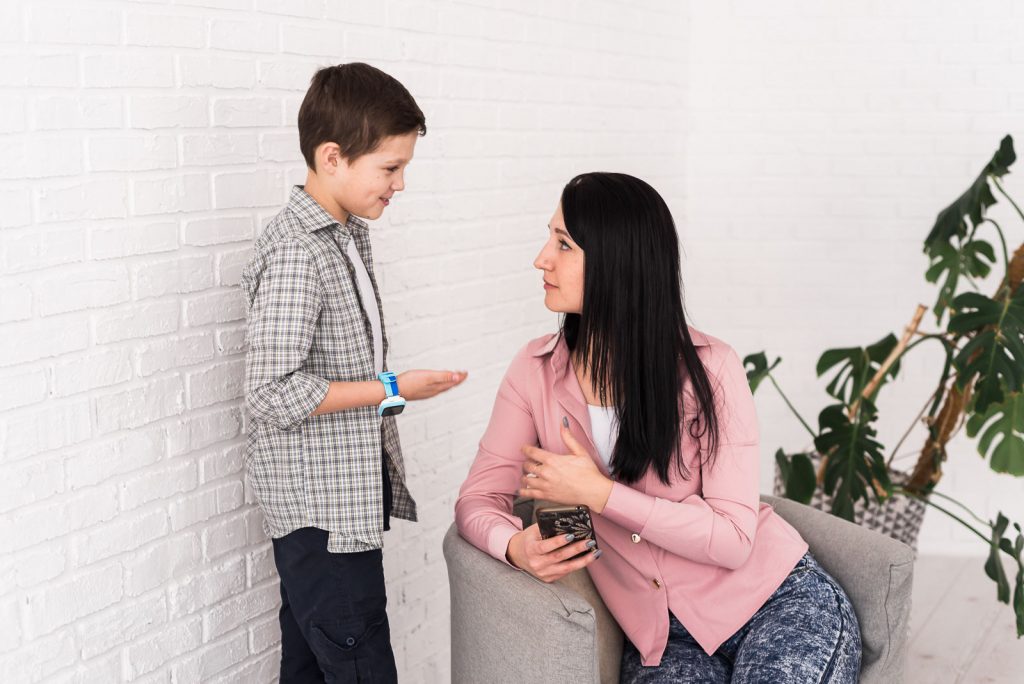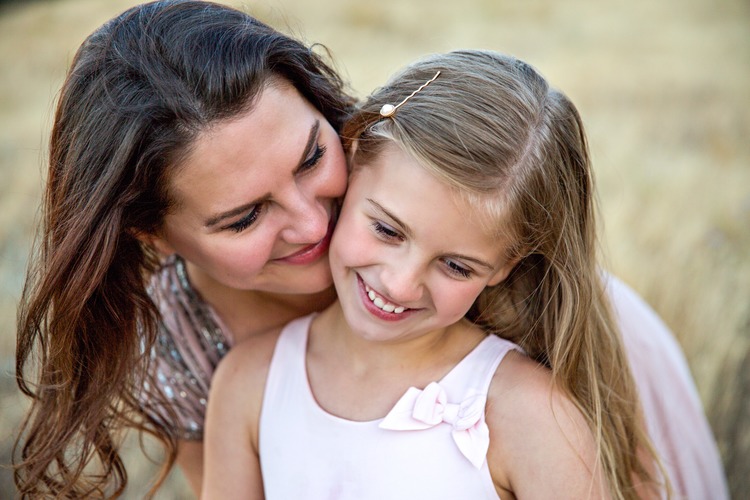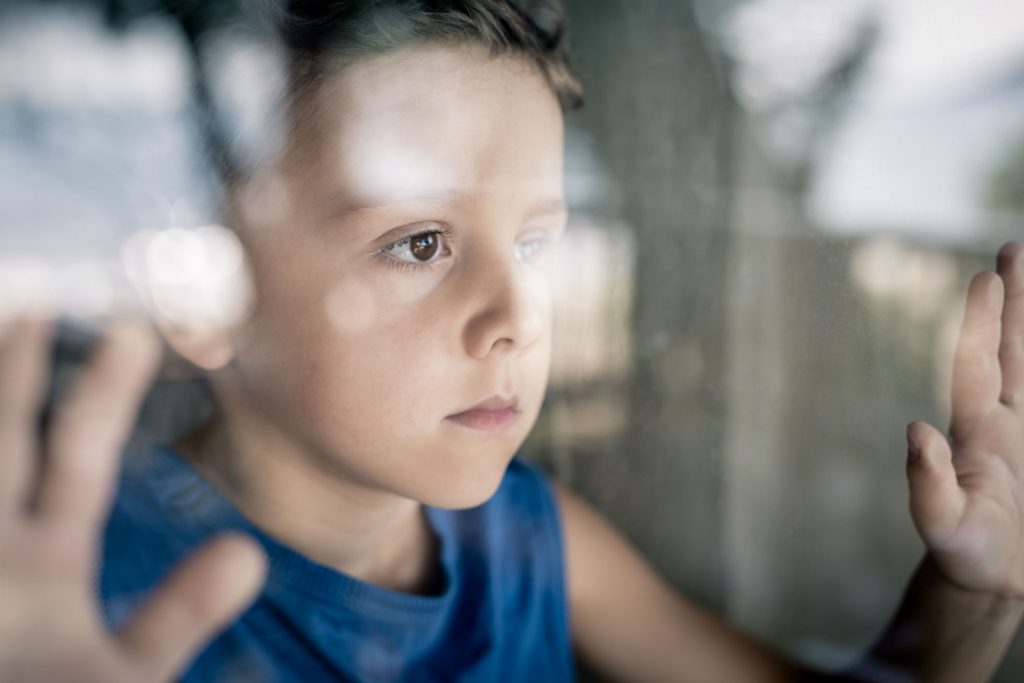‘Mаma, I’m a Big Now’: How Does the 7-Year-Old Child Crisis Manifest Itself

The 7-year-old crisis can catch many parents off guard. While the 3-year-old crisis is well-known, not all parents are familiar with the emotional and behavioral challenges that can arise when a child reaches age seven. If your child suddenly becomes defiant, throws tantrums, or seems to ignore your instructions, don’t panic—these behaviors are common during this stage of development.
In this article, we’ll explore what the 7-year-old crisis looks like and provide expert tips on how to successfully manage this challenging phase.
Contents:
- What Needs To be Known About the Crisis Period
- How Do Adults Need to Overcome this Crisis
- The Consequences of the Crisis
- Tips of a Psychologist
- FAQs
What Needs To Be Known About the Crisis Period

Prostock-studio/Shutterstock.com
The Underlying Reasons
In psychology, the age of 6-7 years is usually considered to be transitional and critical to a child’s development.
This stage combines physical milestones (growth spurts, new coordination), social milestones (friendship building, teamwork), and emotional development. It’s a delicate time for mental health, as children learn to balance independence with parental care.
As a child grows, they eventually leave preschool age and start going to school. This is a new phase of their life! They now must sit in the classroom, do homework, listen to the teacher, and take a more active role in learning at school. This puts the fragile child’s psyche under serious scrutiny and, if unmanaged, can even trigger a mental health crisis in sensitive children.
Has your child just started school? On this very special occasion, we have gathered psychologists’ advice and best tips to help your child’s development and mental health during this crucial school-age transition.
Nevertheless, it is a mistake for parents to believe that graduating from preschool to start school causes a crisis in children.
When a life change occurs, children acquire new skills (in psychology, they are called neoplasms). These new skills help kids to successfully adapt to school life in the future.
The following is related to the 7-year-old child crisis:
- Self-regulated behavior. The child loses their childlike spontaneity and becomes more serious and focused. They learn to manage their behavior: they try to do what is necessary, and not what they feel like doing, and follow certain rules.
- Becoming aware of their own worries. The child gets acquainted with their own inner world, begins to comprehend themselves as an individual, and assumes their differences in comparison to other people.
- The external point of view of a school student. By the age group of 6-7, the child gradually moves away from games towards educational activities. They test themselves in new situations and master new forms of behavior. The ex-preschooler becomes interested in communicating with adults and discussing “adult-like” topics with them. Some begin to avoid the company of younger children.
Therefore, the primary cause of the 7-year-old crisis is the formation of the child’s social “ME”. It’s the emergence of new social relations with the people around them, where the child no longer acts like a preschooler, but more like an adult.
The Main Features of the 7-Year-Old Crisis

Prostock-studio/Shutterstock.com
All behavioral changes in the child may be classified into three groups:
- Crisis symptoms of the first category are related to a disruption or disobedience to the rules that are lived by within the family. The child is:
- often rude;
- argues about everything, displays stubbornness on a constant basis;
- refuses to do something when asked;
- breaks toys, claiming that they are fed up with them.
- The second category of the features of a starting crisis is the urge to repeat after adults, with the following:
- acting unnaturally, talking in a different voice;
- mocking adults;
- asking to buy them fashionable clothes and new gadgets;
- experiencing sudden mood fluctuations;
- getting offended when being laughed at or criticized.
- The third group of indicators is related to the child striving to be independent:
- starting to display interest in family affairs;
- engaging in conversations with adults;
- starting to take on new responsibilities.
Did you notice one or more symptoms from each category in your child? It likely means that your child is going through a 7-year-old crisis. And all symptoms are important for the development and growth of your child. At this stage, consistent routines and positive discipline approaches, such as calm guidance instead of punishment, are especially helpful.
During this stage, children may display temper tantrums and emotional outbursts far more often than before. Some temper tantrums resemble the “terrible twos,” but now they carry deeper emotions tied to self-identity and growing social relationships.
Gender-Related Particularities

Prostock-studio/Shutterstock.com
Boys and girls go through this crisis stage in different ways.
Psychologists agree that this age in life is more difficult for girls. A once studious girl might start throwing tantrums at home. Moreover, girls at this age compete for the attention of a teacher or classmates, which could also lead to conflicts.
To help your daughter through this stage of development, praise her for good grades and school achievements, be interested in her relationships with classmates, and do not criticize the desire to look “grown-up”.
In general, boys at the age of seven strive to prove themselves, to show that they are the most courageous, or strongest, and that they are the best.
Therefore, boys often behave aggressively, annoy girls, and compete against each other. They strive to express their opinion on any occasion and defend their position as much as possible. At 7 years old, a boy’s learning problems often arise from restlessness and a lack of concentration. They may have temper tantrums linked to restlessness or frustration with rules.
Overall, it’s important for parents to diversify a 7-year-old’s school routine with physical activity like hikes, trips, sports, outdoor games, and excursions. These activities allow children to let out energy and gain insight into the world.
In both genders, positive discipline strategies, like calm correction, empathy, and consistent rules, are far more effective than punishment.
The Crisis Through the Child’s Eyes

Prostock-studio/Shutterstock.com
To understand how a child feels during a 7-year-old crisis, you need to look at what is happening from their perspective. Here’s the story of a seven-year-old boy:
“I am 7 years old. I have grown up and I go to school. My mother is now telling everyone that I’m a grown-up. So I try to behave like an adult.
Yesterday I decided to wash the dishes myself and accidentally broke my mother’s cup. Mom scolded me for a long time, saying that I should not have started doing it since I could perform the task carefully. But I can do everything, it’s just that the cup was covered in soapy foam, and that’s why it slipped out of my hands.
We have a boy named Bob in our class at school. He often fights and offends girls, although the teacher scolds him for this. I want to be like Bob. When I told my mother about him, she said that Bob is a bully and that I cannot be friends with him. I said that I would still be! Then my mother said that I was still a child and that there were a lot of things that I still don’t understand.
But how am I little if I am already grown up?! I go to school, do homework, help around the house… ”
As you can see, parents often emphasize that the child is entering “adulthood” while continuing to treat them like “a child”.
This inner conflict can spark repeated temper tantrums and emotional outbursts, which are not signs of disobedience but children’s crisis reactions to stress. In some cases, these reactions are intensified by traumatic events or post-traumatic stress.
It’s so important to create conditions that don’t conflict to help the child understand how to behave.
How Do Adults Need to Overcome This Crisis?

Prostock-studio/Shutterstock.com
The child’s crisis at the age of 7 years old becomes the crisis of the parenting approach to raising their children.
Previous measures of influence applied to a son or daughter are no longer effective. Therefore, it is important for parents to be flexible and to reconsider their views on the upbringing of the ex-preschooler.
Experts recommend authoritative parenting—a balanced style that combines warmth with clear boundaries. By focusing on emotional intelligence and positive discipline, parents can help children develop coping skills while respecting body autonomy and social-emotional skills.
To begin with, stop overprotecting your child and provide them with a reasonable amount of freedom as they develop into middle childhood! To guide your child and help them make healthy lifestyle choices to ensure their safety, download the Findmykids app. You can keep track of kids’ whereabouts, screen time, and more. Better still, while your child explores their independence, the app allows them to send an SOS signal to you if they’re ever in trouble and need help.
10 DON’Ts For the Parents:
- DON’T try to make life easier for your child at every step of the way.
- DON’T overload them with extracurricular activities and lessons after school.
- DON’T force or put pressure on the child.
- DON’T criticize their friends.
- DON’T ignore the child’s problems at school.
- DON’T scold or laugh at their failures or mistakes.
- DON’T talk about the school or the teachers in a negative way.
- DON’T compare your child to other children.
- DON’T humiliate or punish them physically.
- DON’T annoy them with long conversations about entering “adulthood”.
The natural desire of all parents is to protect their children from all kinds of troubles in life. However, if you constantly monitor and correct their every step, your son or daughter will never learn to lead an independent life.
The most sensible thing that parents can do during a 7-year-old crisis is to teach their children to overcome hardships on their own.
10 DOs For the Parents:
- DO spend more time with the child.
- DO demonstrate your love towards your son or daughter with the use of hugs, kisses, and words of support.
- DO allow the child to solve problems by themselves whenever they can.
- DO accept the individual, unique features of the child.
- DO help the child to become more self-confident.
- DO discuss any topic with them.
- DO listen to them carefully, without interrupting them.
- DO leave some time for games.
- DO laugh, play around, and have fun together.
- DO help them with homework, but only when the child asks for help.
The Consequences of the Crisis

Prostock-studio/Shutterstock.com
The result of the 7-year-old crisis largely depends on the actions of parents.
If mum and dad manage to opt for the right strategy when raising children and accept all the behavioral changes in their child in a calm manner, then by the end of the 7-year-old crisis, the child would have developed the following:
- A positive attitude towards school and academic life
- A new social role
- The willingness to learn new things and to extract new knowledge on their own
- Friendly relationships with their classmates
- Respect towards the teacher
- The ability to act according to the rules, set goals, and achieve results
If parents are overly demanding towards the child, if they pay great attention to academic performance and ignore other school issues, then the child may experience a phenomenon known as school maladjustment. It manifests itself in the following ways:
- The loss of interest in studies, a decrease in academic performance
- Insecurity about their actions, and a decrease in self-esteem
- Conflicts with teachers and classmates
- Health issues, such as the loss of sleep and appetite, fatigue, and headaches
When managed with patience and parental care, the 7-year-old crisis strengthens resilience. Children achieve new physical milestones like better coordination, refine their gross motor skills, and improve social relationships at school. When mishandled, repeated temper tantrums or neglected emotional outbursts can lead to anxiety, isolation, or even long-lasting mental health crisis.
Tips of a Psychologist

Prostock-studio/Shutterstock.com
The 7-year-old crisis is a vital stage of the child’s development. Therefore, parents need to have a lot of patience during this time and aim for the right strategies in raising their children.
To help develop the right strategies for helping your child through the 7-year-old crisis, try the following:
- Ask the child’s opinion on family matters and incorporate their advice to help solve problems
- Praise the child for achievements like good behavior, and support them with the changes they’re experiencing
- Like any other age crisis, some things remain consistent. If you do not allow your child to do something, do so always, regardless of the circumstances
- A clear timetable with clear rules for the day will make your and your child’s life easier. The usage of gadgets and screen time should be limited
- Does the child want independence? Give it to them. But here are some safety tips: let them pack their bags for school, do their homework, and set the alarm clock without a reminder. This is their area of responsibility now, as completing these tasks doesn’t do any harm.
Don’t ignore a child’s problems at school and with their classmates, even if they seem insignificant to you
A child needs parental support at any stage of their life. It can be a real tragedy for a child if the teacher calls them a slob in front of the whole class, or if a classmate makes them trip during break time.
These clear rules apply to all children, but in particular to anxious, timid, and shy children.
Discuss the whole of the school life with your child, not just their grades
What traditional questions do parents have when a son or daughter returns home from school? Yes, that’s right: what grades did you get today, and did you get any Ds?
However, what can be asked instead are questions like, What kind of new and interesting things did the child learn during the day? What lesson and which teacher did they like the most? And many other, much more important things than grades?
Don’t make the child the prisoner of your unfulfilled dreams
If you stay up until late at night with them, making them redo the task again and again in the event of a minor mistake, these are your ambitions. If your child wants to play soccer, but you sign them up for dance classes, only because you yourself were dreaming of it—these are your ambitions, too.
Let your son or daughter live their own life: to choose what they are interested in, to make mistakes, to learn about the world around them through first-hand experience.

Prostock-studio/Shutterstock.com
Try to convey the information in the form of “asks” and in a calm voice
A 7-year-old child is already faced with a few requirements at school. In response to your phrases, such as “you need to”, “hurry up”, and “do it right now”, the child may display a strong negative reaction.
Don’t focus on the child’s mistakes
Everyone makes mistakes, even parents, and it’s better for a child’s mental health or a child’s development to focus on all aspects of a child’s behavior– not just the good or bad. After all, the only person who doesn’t make mistakes is the one who doesn’t do anything at all!
Remember: not every meltdown is a mental health crisis. Still, frequent and intense temper tantrums may point to underlying struggles with stress, trauma, or children’s crisis reactions that require attention.
Ask for help from the school psychologist or therapist
Sometimes the symptoms of the 7-year-old crisis are very apparent and difficult to deal with, and if left unchecked, may escalate into a mental health crisis that needs professional care.
For example, some warning signs include that the child refuses to go to school, no longer wants to see friends, or is unreasonably aggressive and rude. In these cases, seeking some mental health services and help from a school psychologist or therapist is critical.
Other signs that your child should see a therapist include constantly asking for reassurance, changes in sleep patterns, isolation at home, increased irritability, clinginess, withdrawal from typical activities, and changes in eating or hygiene.
If temper tantrums or emotional outbursts escalate into a mental health crisis, professional support is essential too. This could mean school counseling, therapy, or parent-child sessions. Ignoring repeated temper tantrums or treating them only as “bad behavior” risks overlooking early signs of deeper issues.
Introduce your child to healthy lifestyle choices
This includes limiting processed foods or foods with added sugar, which will help them adapt to the 7-year-old crisis. You can also encourage daily exercise, which will allow them to move their bodies and decrease stress and anxiety.
Sleep is also important to help your child adapt to new changes in their lives, as it impacts health, physical milestones, and overall well-being. According to the Centers for Disease Control and Prevention, a school-age child needs 9-12 hours of sleep per 24 hours.
Developing a social media or limited screen time plan can help with sleep, too, which is where using a parental control app like Kids360 is handy. Through the app, you can control and see how often your child looks at their device and even what they’re looking at.
If there’s anything you’ve learned from reading this article, it’s that the 7-year-old crisis is a completely normal event in a child’s life. The behavioral changes that occur aren’t caused by developmental delays.
according to established organizations like the American Academy of Pediatrics or the Centers for Disease Control and Prevention, research has long shown a significant change in a child when they reach the age of 7. This developmental stage in a child’s life is crucial as it helps them develop skills they can use in the future.
Therefore, there is no need to be afraid of such an age crisis. This is another step in the development of your child, which will help them to become an adult.
FAQs
How long does the 7-year-old crisis last?
It usually lasts several months to a year, depending on the child and parental support.
Why is 7 such a difficult age?
It’s such a difficult age because it’s a turning point in child development. It’s when emotional intelligence, social milestones, and school demands all collide.
What is emotional dysregulation in a 7-year-old?
This is when a child struggles to control emotions, leading to frequent emotional outbursts and temper tantrums.
What are the developmental red flags for 7-year-olds?
Red flags include ongoing social withdrawal, repeated intense tantrums, lack of physical milestones progress, or signs of a mental health crisis like extreme anxiety or aggression.
Read more:
- How to Stop Your Kid’s Tantrums?
- Aggressive Behavior in Children: What Can Parents Do?
- How Not to Raise a Selfish Child in a One-Child Family?
- Problem Children: What Hides Behind Their Disobedience and Tantrums?
- How Not to Scream at Your Child: Learning to Control Emotions
- How to Answer When Your Child Asks “Where Do Babies Come From?”
Проверьте электронный ящик



















